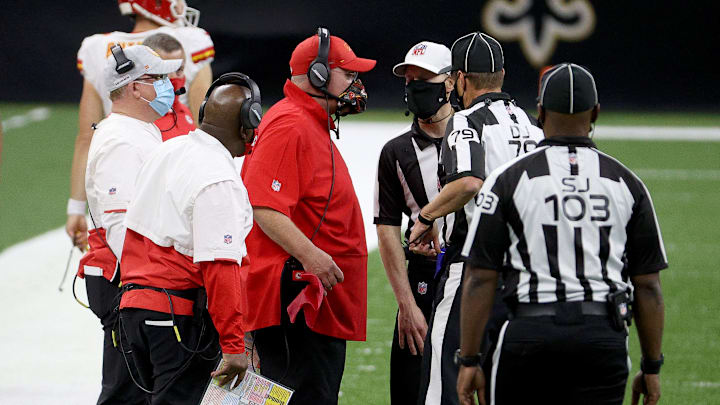We've all been there before, wondering why (or why not) our team's favorite head coach hasn't challenged a particular play. But when should we be yelling at our screens or from the stands? And when should we know that there's nothing to be upset about? Let's look at the way things work for coaching challenges.
In the NFL, head coaches have the ability to challenge certain calls made by the on-field officials. The challenge system allows them to contest specific plays and review them via instant replay. However, there are limitations to what can be challenged, so coaches cannot just throw out a challenge flag anytime they please.
One of the most common challenges you'll see comes on scoring plays. Coaches can challenge plays involving scoring, such as touchdowns or field goals. This includes determining if a player was in or out of bounds, crossed the goal line, or possessed the ball properly during a scoring play.
Another common point of contention for coaches comes from a change of possession due to a turnover. Coaches can challenge plays involving turnovers, such as fumbles or interceptions, and whether or not a player had control of the ball, if there was an incomplete pass, or if the player's knee was down before a fumble occurred.
Let's look at the rules for when NFL head coaches can use their challenge flags.
In addition, coaches can challenge whether a pass was complete or incomplete. This includes questioning whether a receiver had both feet inbounds while making a catch, maintained control of the ball, or made a clean catch. That's also true of runners, as a coach can question whether a ball carrier was down by contact before fumbling the ball. This allows them to challenge if a player's knee or any body part other than the hand or foot touched the ground prior to losing possession.
Coaches can also challenge calls related to sideline boundaries, including determining whether a player stepped out of bounds or maintained possession while crossing the sideline.
Finally, coaches can challenge plays that occur at or near the goal line. They can challenge whether a runner crossed the goal line for a touchdown or was stopped short, as well as whether a ball carrier fumbled before crossing the plane.
Coaches cannot challenge certain types of calls, including penalties like holding, offsides, or unnecessary roughness. These calls are subjective and are typically not reviewable through challenges. Additionally, judgment calls made by the officials, such as the spot of the ball or the severity of a hit, cannot be challenged.
